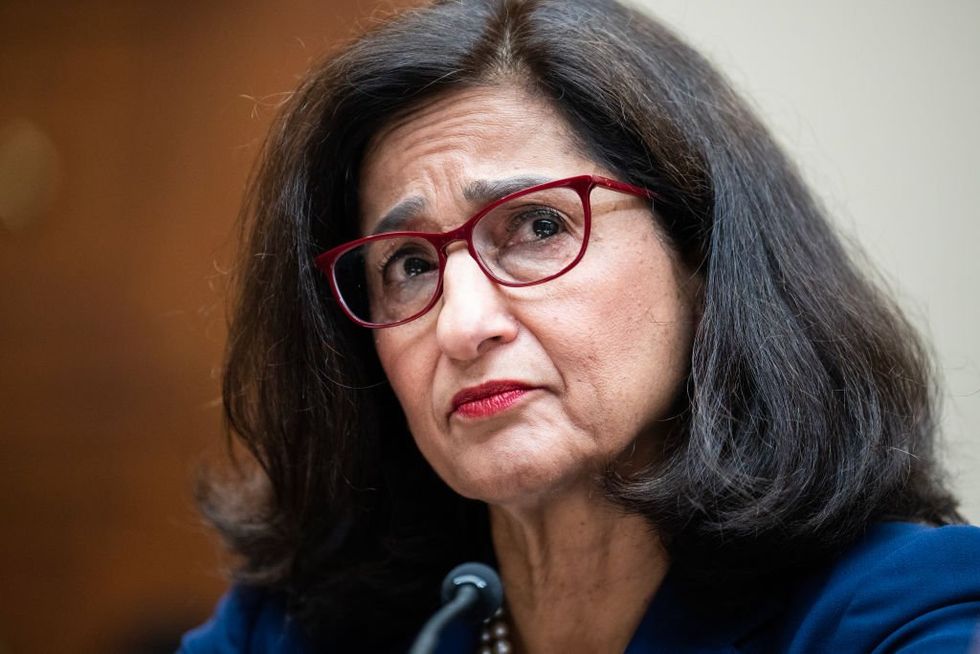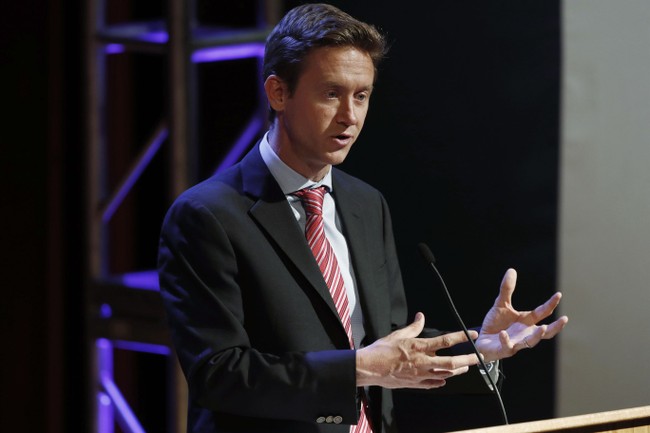Columbia president resigns months after violent pro-Hamas protests take over university

Minouche Shafik has resigned as president of Columbia University just a few months after radicals set up an encampment and eventually barricaded themselves inside a building to protest ongoing hostilities in Gaza and the school’s ties to Israel.
On Wednesday, Shafik released a letter announcing her resignation, and she made very clear that the disruptive protests on campus last spring prompted it.
“Tension, division, and politicization have disrupted our campus over the last year,” she wrote, leading to “turmoil” that has precluded open dialogue.
Though she denounced all forms of discrimination, Shafik also championed the importance of “free speech” and “openness to new ideas” and claimed that educating future leaders while still holding fast to core academic principles was Columbia’s “North Star.”
“I have tried to navigate a path that upholds academic principles and treats everyone with fairness and compassion,” she insisted.
On Thursday, Speaker Johnson celebrated the news of Shafik’s resignation, calling it ‘long overdue.’
Despite her alleged efforts at promoting these traditional values, Shafik said she and the students and faculty of like mind were “the subject of threats and abuse” and that the campus protests took “a considerable toll” on her family.
Tensions on campuses around the country had been simmering for months following the attacks on Israelis on October 7, but they escalated significantly in April. At that point, pro-Hamas protesters established an encampment in the center of Columbia’s campus, harassed Jewish students and faculty, and demanded that Columbia leaders divest the school from Israel.
The situation at Columbia became so untenable that Speaker Mike Johnson (R-La.) met with Shafik in late April and afterward called for her resignation.
A few days later, Shafik authorized the NYPD to arrest participants who had ignored orders to disperse, locked themselves inside Hamilton Hall, and proceeded to deface the building by breaking windows and scrawling anti-Semitic messages.
On Thursday, Speaker Johnson celebrated the news of Shafik’s resignation, calling it “long overdue.”
Shafik’s resignation took effect immediately, just as students are set to return to campus for the fall semester. She was just one year into her term as president.
Katrina Armstrong, CEO of the Columbia University Irving Medical Center, is expected to serve as interim president until a permanent replacement can be found.
Shafik, who was born in Egypt and earned a D.Phil. in economics at Oxford, claimed she has accepted a position with the foreign secretary of the United Kingdom.
“I am very pleased and appreciative that this will afford me the opportunity to return to work on fighting global poverty and promoting sustainable development, areas of lifelong interest to me. It also enables me to return to the House of Lords to re-engage with the important legislative agenda put forth by the new U.K. government,” she said.
Shafik’s resignation marks the third resignation of a female Ivy League president in the last nine months. Liz Magill stepped down from her role as president at the University of Pennsylvania last December, and Claudine Gay resigned from Harvard in early January.
Both Magill and Gay struggled with pro-Hamas protests at their universities as well and were grilled by members of Congress for apparently permitting anti-Semitism to run rampant on campus on their watch. The final weeks of Gay’s tenure were also marred by accusations of plagiarism and academic misconduct.
Like Blaze News? Bypass the censors, sign up for our newsletters, and get stories like this direct to your inbox. Sign up here!







